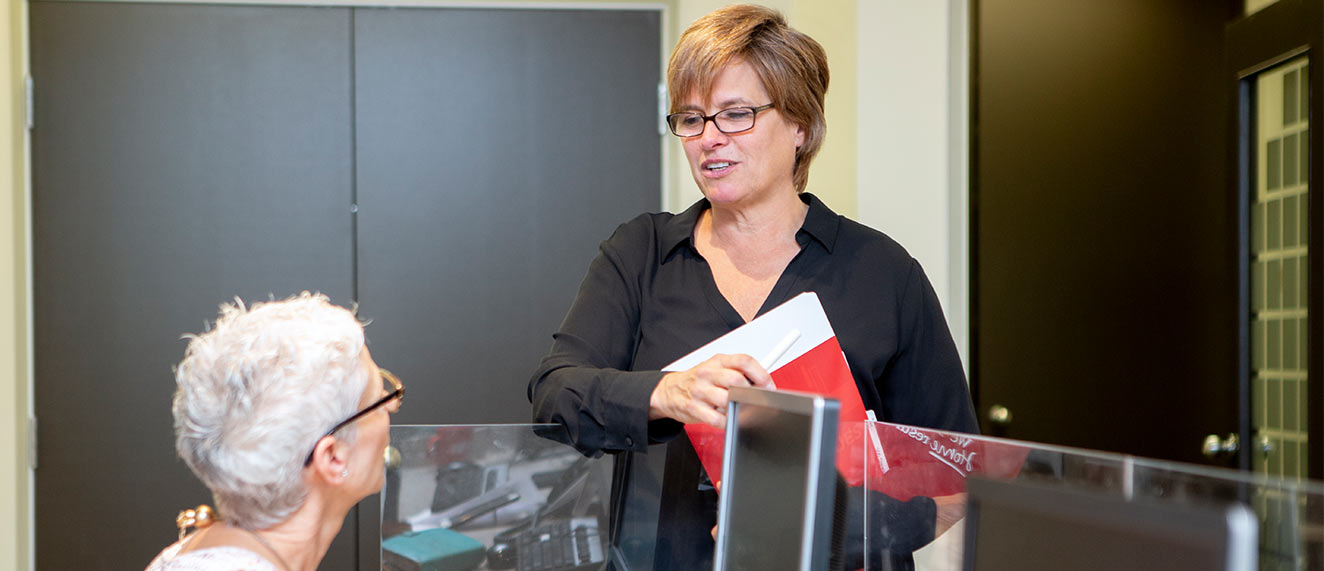Do you think you’re a candidate for work-related burnout? The truth is, it’s not always easy to know because, if you love your work, unexpected tasks or 24-7 availability to clients won’t seem like such a big deal. But here’s fair warning: burnout works in stealth. It’s a process that wears you down over time, not overnight.
If you ask Susan Dunton, a REALTOR® since 2002 and a broker currently with Royal LePage Performance Realty, Brokerage in Ottawa, whether she could see herself as a candidate for real estate burnout, she says, “My easy answer to that is yes!”
Dunton was laughing when she said this, but she did open up about the various stressors that can, if left unchecked, lead down the path to workplace burnout. After all, the world of real estate is partly as rewarding as it is because agents invest so much of themselves into their work. The stakes are high and you’re helping people find the properties of their dreams so it’s an emotionally-charged environment.
Two years ago, the energetic Dunton, who is a former member of the Canadian Women’s Volleyball Team, underwent double knee replacement surgery. She’s happy to talk about it now, but at the time tried to keep the matter quiet—something she likened to a top-secret, classified operation. But why? After all, any one of us has the potential to experience health challenges. For Dunton, whose face is quite literally her brand, appearing less than superhuman was not an option. Showing weakness in front of clients or colleagues just isn’t done, which means “agents can be less forthcoming with those kinds of personal details,” Dunton said.
Possible signs of encroaching work-related burnout:
- fatigue;
- irritability;
- insomnia;
- weight loss or gain;
- increased use of drugs or alcohol;
- headaches;
- stress-related muscle/back pain;
- changes in personal hygiene;
- emotional exhaustion;
- loss of satisfaction in the things that once made the job exciting (such as: thrill of sales or connecting a family with their dream home);
- detachment from clientele, co-workers, family and friends; and
- placing work concerns before basic health (for example: missing doctors’ and dentists’ appointments).
Whether from the pressure of maintaining an illusion of invulnerability or through sheer force of will, Dunton refused to let even major surgery slow her down.
“I gave up my phone for four days!” she said, as though it were a herculean feat to stop working that long. “But I had my iPad. I was on crutches very quickly, and I was out on an appointment three weeks later.”
At first, the operations (both surgical and covert) appeared to have been successful. All of that changed, however, when Dunton saw a post on social media, in which someone made an inquiry about her recovery. “My cover was blown,” she said, laughing again. “I got outed on Facebook!”
Behind the cheerfulness, however, Dunton acknowledges a hard truth of the real estate world: “People don’t really want to hear that we’re tired, burnt-out, down or sick.”
The pressure to remain unbreakable, always at the top of one’s game, is exactly the kind of stressor that could push a REALTOR® on the path to burnout. To her credit, Dunton has been taking many of the physician-approved steps to deal with workplace stress: She makes a point of getting lots of sleep, plenty of exercise, maintains a positive outlook and has colleagues who provide a built-in support system.
Resilience is the key
According to Dr. Ash Bender, an occupational psychiatrist and assistant professor with the Faculty of Medicine at the University of Toronto, individuals who report high job strain are about twice as likely to develop a major depressive disorder in their lifetime. For this reason, the key to avoiding burnout is resilience—something Dunton appears to have in abundance.
“Resilience is not the ability to be impervious to injury or stressors or other factors,” Bender stressed. “Resilience is the ability to bounce back or recover from life’s stressors and demands.”
Factors that help us become more resilient:
- good work environment—people who have difficulty maintaining a positive outlook do better when working with someone who has a positive attitude;
- physical exercise;
- maintaining regular visits to doctors/dentists;
- seeing a therapist; and
- confiding in a spouse, family member or co-worker.
If you’re not sure if you’re feeling burnout, here are online tests recommended by Ann Morgan, a registered psychotherapist in Ontario:
This is a quick, online, private, mental health checkup to identify symptoms of common mood disorders to get help if you need it. Learn more about mood disorders on this site and find resources to help yourself, your family members or friends.
MoodGYM
This is an interactive web program teaching the principles of cognitive behaviour therapy, an evidence-based treatment for depression and anxiety that demonstrates the relationship between thoughts and emotions. It consists of five modules, an interactive game, anxiety and depression assessments, downloadable relaxation audio, a workbook and feedback assessment.
This is a free and confidential online cognitive behavioural therapy service providing you with the support you need to feel better.





GREAT ARTICLE
THANK YOU FPR SHARING THE PITFALLS OF BURNOUT IN YOUR CAREER